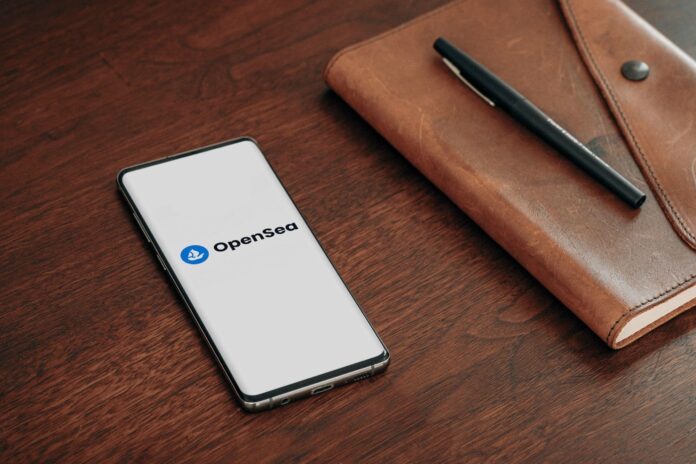The first-ever insider trading trial in the US involving digital assets is getting underway, and the focus is on art, not stocks. A former product manager at OpenSea, the largest NFT (non-fungible token) marketplace, has been accused by the Manhattan District Attorney’s office of violating confidentiality procedures in order to sell his collection at an inflated profit.
The landmark trial, which is undergoing jury selection this week in Manhattan federal court according to Bloomberg, raises big questions about the ethical guardrails in the cryptocurrency world and could permanently shift the popular understanding of “insider trading”.
Nathaniel Chastain was responsible for curating highlighted tokens for OpenSea, which typically led the assets to surge in price. While OpenSea’s company policy held that featured tokens would not be released until their arrival on the marketplace’s homepage, prosecutors say that Chastain bought the designated tokens in bulk and sold them after their identity was made known to the public at up to five times their original value.
Instead of charging Chastain with securities fraud, a transgression that typically involves exploiting clandestine information on stocks or acquisitions, the prosecution alleges that Chastain committed wire fraud. This framework allows prosecutors to sidestep a formal declaration on whether or not an NFT can be considered a security, a much-debated topic in the digital asset realm. Chastain has argued that because NFTs are neither securities nor commodities, they can’t be considered “misappropriated property”; he further insists that his trades do not constitute money laundering because they occurred on a public blockchain.
Chastain’s case arrives in the wake of a watershed lawsuit against Dapper Labs, developer of the NBA Top Shot NFT marketplace where fans can buy, sell and trade non-fungible professional tokens featuring basketball video clips. Dapper Labs was accused of selling unregistered securities, known as “Moments”, in the form of NFTs. US district judge Victor Marrero allowed that case to go forward after finding that the “Moments” were, in fact, securities, despite the defense’s protestations that “common sense” says otherwise. That case has major implications for the definition—both legal and colloquial—of NFTs.
According to the prosecution in the OpenSea case, Chastain bought a total of 45 NFTs in 11 separate transactions; two of his alleged schemes centered on the art pieces Brawl 2 by Arya Mularama and Flipping and spinning by Russ Morland.
“A marketing concept, such as what should essentially be featured in an art gallery window, which has no determinable economic or saleable value and is based on an employee’s unspoken thoughts—regarding the mere selection of an item for prominent display—does not fit this bill,” Chastain’s lawyer, David I. Miller, wrote in a court filing.
Despite a group of more than 300 defense attorneys filing a letter in support of Chastain’s request to throw out the indictment, presiding US district judge Jesse Furman has roundly rejected any exclusion of the phrase “insider trading”, maintaining that the term is “descriptive” of Chastain’s conduct, which court documents describe as “a scheme and artifice to defraud… by means of false and fraudulent pretenses, representations, and promises”. In a letter to judge Furman, Miller stated that the “only victim of the alleged conduct charged in this case is OpenSea”; the government alleges that Chastain made upwards of $57,000 in profit from his activities.
Chastain was asked to resign from his post at OpenSea in September 2021 after coming under fire for these sales. The company thereafter instated new policies preventing employees from buying or selling featured NFTs. Chastain, who was arrested in June 2022, faces up to 20 years in prison on each count if convicted.
In a conversation with Reuters, Philip Moustakis, a former Securities and Exchange Commission enforcement lawyer and partner at Seward & Kissel, said, “Is it insider trading of anything? If this case sticks, there is precedent that insider trading theory can be applied to any asset class.” As the case moves forward, the legal and regulatory standing of NFTs hangs in the balance.

























